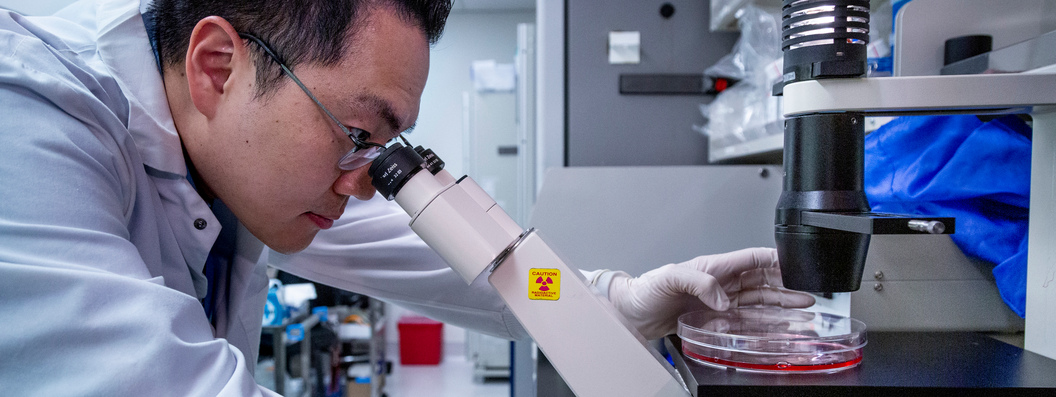
Award will fund research into new metastatic prostate cancer therapies
For about 70 years, prostate cancer researchers have known that the male sex hormone testosterone, an androgen, along with androgen receptor signaling on prostate cancer cells, are linked to survival rates in prostate cancer. As a result, androgen-deprivation therapy, or ADT, which suppresses the production of these sex hormones, has been a cornerstone of prostate cancer treatment for decades.
“We’ve been really effective at blocking that hormone, that target, in prostate cancer,” said Dr. John Lee, a Fred Hutchinson Cancer Center oncologist and researcher. “But it’s not a cure, not in metastatic disease. It will make the disease regress and be controlled for a couple of years, but eventually the prostate cancer will figure out a way to keep going, independent of androgens and sometimes independent of androgen receptors.”
Are new options needed? “Absolutely,” Lee said.
“Once it reaches a phase called castration-resistant, it’s considered to be the end-stage of the disease. And while there have been a couple of treatment options that have emerged over the last decade, they only extend survival for a couple of months. We definitely need more.”
A three-year, $750,000 grant from the San Antonio, Texas-based Robert J. Kleberg, Jr. and Helen C. Kleberg Foundation will allow Lee and Fred Hutch collaborators Drs. Pete Nelson and Roland Strong to explore that more — specifically through the use of immunotherapy.
“The human immune system is a much more potent cancer fighter than any sort of treatment we could apply,” Lee said. “If we could coax the immune system into better recognizing the cancer and eliminating the cancer cells, that would provide a lot of hope.”